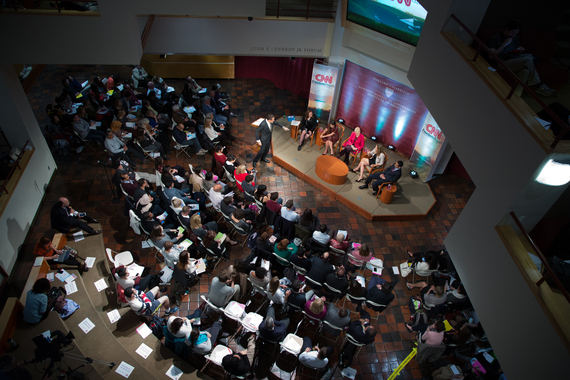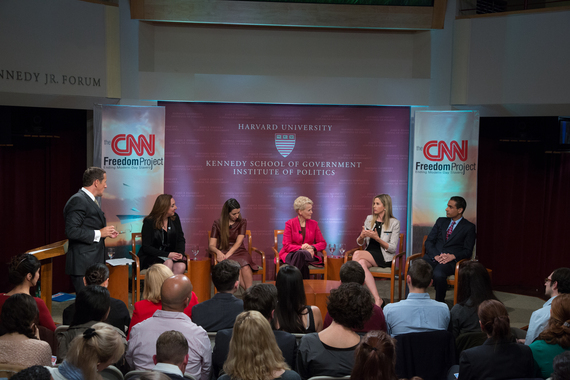By Jackson Gates, Harvard College 2019
I had the incredible privilege to sit down with Leif Coorlim, executive editor of the CNN Freedom Project, and attend the CNN-produced John F. Kennedy Jr. Forum on modern slavery. The discussion of the issue touched on many facets of the movement to combat modern slavery.
I'd argue that you'd be hard-pressed to find anyone who doesn't think the global community faces an array of important issues, whether it be climate change, terrorism, corruption, or poverty. Americans are intimately aware of and involved in many of these global issues, as we feel that phenomena such as climate change and terrorism have direct consequences for our friends, family, and posterity. The global problem of human rights infractions however, under which modern day slavery falls, are often tragedies solely understood and experienced through the international news section over morning coffee: we assume that American freedom could not possibly harbor such gross injustices. As such, modern slavery does not necessarily jump to the forefront for the average American thinking on the pressing issues facing the U.S. I have learned, however, over the course of my interview with Mr. Coorlim and my experience at the Freedom Project forum, that modern slavery's consequences are more pervasive here than many of us are aware.
When asked how the exposure to modern slavery through the Freedom Project had evolved his understanding of the phenomenon, Mr. Coorlim's immediate response was how astonished he was at the degree to which slavery is an issue domestically. The panelists echoed this response, describing both how extensively sex trafficking and slave labor exist and are hidden from the public eye in America, and how even international slave labor's consequences are not as distant as we understand them to be. Because the movement is still in its infancy, corporate transparency with regards to slave labor being a part of their production chain is as of yet undeveloped. Everyday, we unknowingly feed the slave labor machine in our consumption of goods for which it is impossible to distinguish between those tainted by and free of slave labor. Everyday, countless young girls face grotesque living conditions that result in unquantifiable psychological and physical suffering. Yet were you to ask an acquaintance to rank the global issues to be combated domestically, watch how few people mention modern day slavery.
It is not my aim to assert that we drop our efforts on combating other global issues and make fighting modern day slavery our number one priority; I have neither the knowledge nor the requisite conviction to make such a claim. I do, however, find myself questioning the degree to which our assumptions about the impermeable excellence of our Americanness leave us vulnerable to such grotesque phenomena as modern slavery festering within our borders.
---
Jackson Gates is a freshman at Harvard University considering a concentration in Government with a secondary in Economics. He is in the Event Support sub-committee of the John F. Kennedy Jr. Forum Committee, as well as a member of the Harvard Political Union and Classics Club Basketball team. Born and raised in Cambridge, Jackson is also passionate about literature, counting David Foster Wallace and Ernest Hemingway as his two favorite authors.

